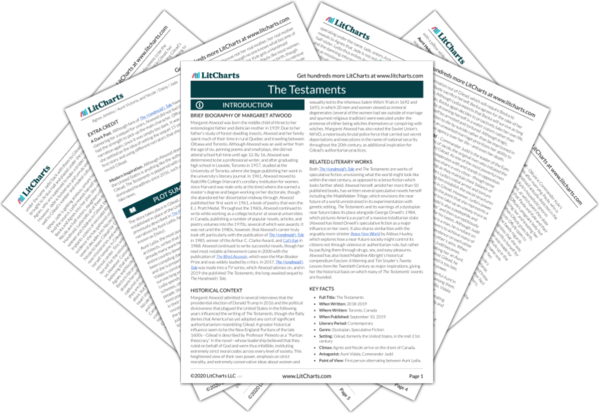Once again, Lydia demonstrates that she not only passively protects women by letting them become Aunts to escape forced marriage, but actively undermines Gilead’s main social convention, proactively extending herself and thus risking her own power and reputation in order to rescue young women. Although Lydia was decidedly the villain of
The Handmaid’s Tale, access to her inner narrative and schemes recasts Lydia in the reader’s mind as something of an anti-hero.
